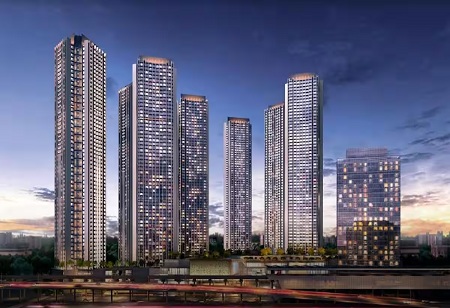
The real estate market in Mumbai secured the sixth highest year-on-year (YoY) price growth in Q2 2023, with a 5.2 percent increase in prime residential prices, according to Knight Frank's report titled 'Prime Global Cities Index Q2 2023'. This surge in Mumbai's real estate market is part of a broader global trend of recovery in luxury house prices, attributed to a reduction in rate uncertainty. Across the 46 markets covered in the index, average annual prices rose by 1.5 percent, marking a positive shift after a period of uncertainty. Dubai maintained its position at the top of the ranking for the eighth consecutive quarter, registering an extraordinary YoY increase of 48.8 percent in Q2 2023. This growth underscores the resilience of Dubai's real estate market.
In the same report, Knight Frank forecasted that Mumbai would continue its upward trajectory in 2024, projecting the highest annual price increase of 5 percent on the
Bengaluru, India's tech hub, secured the 20th position in the index, experiencing a YoY increase of 3.6 percent in Q2 2023. New Delhi, on the other hand, positioned itself at 26th place, showing a YoY growth of 0.2 percent in the same period. Shishir Baijal, Chairperson and MD, Knight Frank India, emphasised the distinctiveness of India's economic performance in the face of global challenges. Despite concerns over inflation and sluggish growth in other economies, India's sales levels in the residential markets remained steadfast. Baijal attributed this success to the country's steady policy interest rates and strong sales momentum in the prime property category, driven by limited ready inventory and increased construction costs.
"This distinctive approach led to the persistence of robust sales levels in the residential markets, in contrast to the market reflections of action taken by most other major economies. Besides, coming out of a prolonged stagnation over the last decade, prime property price movement in the country was also positively influenced by strong sales momentum in the category amid limited ready inventory, and increased construction cost in recent years,” he added.
Looking ahead, Liam Bailey, Research Head acknowledged that while global housing markets continue to face pressure from rising interest rates, the latest data suggests that factors such as strong demand, supply disruptions during the pandemic, and the return of workers to cities are helping to support prices. Bailey also noted a reduction in uncertainty surrounding inflation, indicating that price adjustments in many markets might be less dramatic than previously expected
We use cookies to ensure you get the best experience on our website. Read more...
Copyright © 2025 HomesIndiaMagazine. All Rights Reserved.